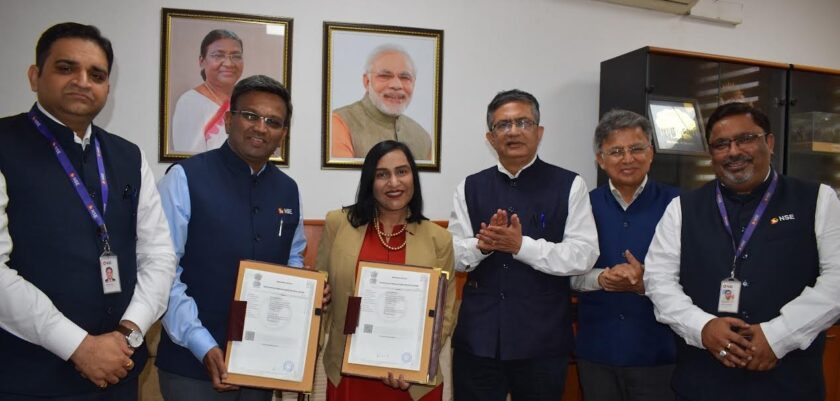Lucknow: India’s rise as a global leader in technology, particularly in the IT sector, has been driven by a combination of factors such as its skilled workforce, competitive costs, and government support for innovation and infrastructure. Here are the key aspects of India’s emergence as a tech superpower:
1. Talent Pool and Education:
- India has one of the largest and most diverse talent pools in the world. Engineering and technology institutes like the Indian Institutes of Technology (IITs), National Institutes of Technology (NITs), and various private institutions churn out thousands of skilled graduates annually. This has positioned India as a global hub for software development, IT services, and now even emerging technologies like AI, machine learning, and blockchain.
- India’s professionals are recognized for their expertise in coding, software development, and providing IT solutions to some of the world’s largest companies.
2. Booming IT Hubs:
- Cities like Bengaluru, Hyderabad, Pune, and Chennai have become key IT hubs with state-of-the-art infrastructure and technology parks. Bengaluru, often referred to as the “Silicon Valley of India,” is home to a vast number of startups, multinational corporations, and R&D centers. Hyderabad’s HITEC City has attracted some of the biggest names in tech, including Google, Microsoft, and Facebook.
- The growth of these tech cities has attracted foreign investment and talent, further cementing India’s leadership in IT.
3. Global IT Services Provider:
- Indian IT giants like Tata Consultancy Services (TCS), Infosys, Wipro, and HCL have become global names in providing software services, consulting, and outsourcing solutions. India accounts for more than 55% of the global market for IT outsourcing, with clients spread across Europe, the US, and other parts of the world. These companies offer not only cost-effective solutions but also a high level of expertise and innovation.
- The IT service industry has been the backbone of India’s economy, contributing significantly to its GDP and employment.
4. Leadership in Emerging Technologies:
- India is not just dominating traditional IT services but is also making significant strides in emerging technologies like artificial intelligence (AI), cloud computing, Internet of Things (IoT), and cybersecurity. The Indian government’s “Digital India” initiative has played a pivotal role in promoting the adoption of these technologies across sectors, from agriculture to healthcare and education.
- Several Indian startups and tech companies are now working at the cutting edge of AI and data analytics, and Indian talent is increasingly contributing to the global development of AI applications.
5. Government Support and Policies:
- Initiatives like “Digital India,” “Startup India,” and “Make in India” have given the tech sector a strong boost. The government’s focus on improving digital infrastructure, promoting digital literacy, and providing incentives for startups has created an enabling environment for growth.
- The roll-out of 5G technology and the push for “Atmanirbhar Bharat” (self-reliant India) have spurred innovation in sectors like telecom, fintech, and electronics manufacturing, making India a key player in the global technology supply chain.
6. Startup Ecosystem:
- India has the third-largest startup ecosystem in the world, with tech-based startups leading the charge. Bengaluru and Hyderabad are considered some of the most innovative cities globally, with startups focusing on everything from edtech and fintech to healthtech and agri-tech. Unicorns like Flipkart, Paytm, Ola, and Byju’s have placed India on the global tech map.
- The increasing availability of venture capital funding, incubators, and government support has helped Indian tech startups grow into global players.
7. Focus on Innovation and R&D:
- Multinational tech companies are increasingly setting up research and development (R&D) centers in India. Companies like Microsoft, Google, IBM, and Intel have their largest R&D centers outside the US in India. These centers are working on cutting-edge innovations in fields like AI, cloud computing, and software development.
- India’s focus on research and innovation has further solidified its position as a technology leader, with institutions like the Indian Space Research Organisation (ISRO) showcasing India’s capabilities on the global stage through projects like Chandrayaan and Mangalyaan.
8. Expanding Digital Infrastructure:
- India’s digital infrastructure is rapidly expanding. The country boasts one of the largest populations of internet users, and the spread of mobile technology, especially with affordable smartphones and data plans, has revolutionized access to information and services. This expanding digital base is creating new opportunities for tech innovations in areas like digital payments, e-commerce, and telemedicine.
- India’s Unified Payments Interface (UPI) is a great example of homegrown technological success, revolutionizing the fintech space with its real-time payment system and making cashless transactions widely accessible.
9. Tech Diplomacy and Global Influence:
- India is leveraging its IT strength to position itself as a global tech leader. Through initiatives like the International Solar Alliance (ISA), technology partnerships with countries like Japan, the US, and the EU, and collaborations in cybersecurity, space, and AI, India is becoming an influential player in global tech policy and innovation.
India’s super expertise in the IT sector is not just a matter of skilled labor and outsourcing anymore; it’s about innovation, leadership in emerging tech, and creating an ecosystem that fosters growth in a digital economy. This evolution positions India as a global tech leader, contributing to its long-term economic and strategic goals.

---------------------------------------------------------------------------------------------------















